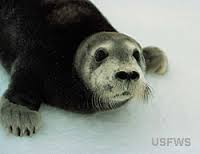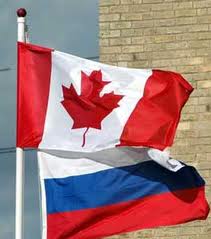|
|
|
|
|
|
|
|
Geopolitics, Security and Energy in the Arctic. October 25, 2016 (Washington, DC USA). While commercial, environmental, and local community development aspects of the Arctic have received increasing attention in Washington in recent times, the US also faces growing national security challenges in the Arctic region. This is a worrying development, as the United States risks not being able to appropriately respond and posture for a rapidly changing security situation in the Arctic. The Atlantic Council will host this event to consider these challenges.
Fulbright Arctic Week. October 25-27 (Washington, DC). The 18-month Fulbright Arctic Initiative supports U.S. priorities on Arctic issues and increasing mutual understanding between Americans and those in other countries. As a culmination of the program, 17 scholars will be presenting their work at public events. Other invited speakers will include officials from the Inuit Circumpolar Council, Arctic Executive Steering Committee, and U.S. Arctic Youth Ambassadors, among other. For more information, please visit the Fulbright Arctic Week website and/or register your interest for updates.
October 25, 2-5:30pm - Smithsonian Natural History Museum
October 26, 2-5pm - Arctic Policy Dialogue at the Carnegie Endowment for International Peace
October 27, 9am-4:30pm - Fulbright Arctic Symposium at the National Academy of Sciences (Constitution Ave. location)
Arctic Technology Conference, October 24-26, 2016 (St. John's, Canada). Founded in 1969, the Offshore Technology Conference (OTC) is the world's foremost event for the development of offshore resources in the fields of drilling, exploration, production and environmental protection. The Arctic Technology Conference (ATC) is built upon OTC's successful multidisciplinary approach, with 14 technical societies and organizations working together to deliver the world's most comprehensive Arctic event.
Today's Congressional Action:
The House and Senate are not in session.
|
Media
 Appeals Court Supports Climate-Based Listing of Seal as Threatened. The 9th Circuit Court of Appeals on Monday reinstated a decision protecting bearded seals in Alaska under the Endangered Species Act, reversing a lower-court ruling and accepting that projections of climate change present a long-term threat to the ice-dependent species. The opinion, written by 9th Circuit Court of Appeals Judge Richard Paez, said the decision was based on whether the National Marine Fisheries Service can list an animal population that is not currently endangered but likely will suffer a population decline in decades to come. Appeals Court Supports Climate-Based Listing of Seal as Threatened. The 9th Circuit Court of Appeals on Monday reinstated a decision protecting bearded seals in Alaska under the Endangered Species Act, reversing a lower-court ruling and accepting that projections of climate change present a long-term threat to the ice-dependent species. The opinion, written by 9th Circuit Court of Appeals Judge Richard Paez, said the decision was based on whether the National Marine Fisheries Service can list an animal population that is not currently endangered but likely will suffer a population decline in decades to come.
Alaska Dispatch News
Why Global Warming Hits the Arctic Harder Than Anywhere Else.
In his new documentary, Before the Flood, Leonardo DiCaprio takes viewers on an eye-opening tour of how climate change is affecting the planet's oceans right now, from rising seas threatening Miami to the perilously melting Arctic. One of the experts DiCaprio meets in the film is Enric Sala, a marine biologist and National Geographic explorer-in-residence. Sala is working to study, document, and protect some of the most biologically important areas of the ocean through the Pristine Seas project. National Geographic
 Canada Seeking to Cooperate With Russia in the Arctic. Despite tensions over conflicts in Syria and Ukraine, Russia and the West have maintained a strong working relationship in the Arctic and Canada's new Liberal government is looking to further bolster that cooperation. Prime Minister Justin Trudeau has continued to press Moscow over its annexation of Crimea and its support for Syrian President Bashar al-Assad's regime in a long-running civil war. But his Liberals have softened the previous Canadian administration's isolationist policy enough to allow for talks with Russia on other matters, such as the far north-despite Kiev's objections. Phys.Org Canada Seeking to Cooperate With Russia in the Arctic. Despite tensions over conflicts in Syria and Ukraine, Russia and the West have maintained a strong working relationship in the Arctic and Canada's new Liberal government is looking to further bolster that cooperation. Prime Minister Justin Trudeau has continued to press Moscow over its annexation of Crimea and its support for Syrian President Bashar al-Assad's regime in a long-running civil war. But his Liberals have softened the previous Canadian administration's isolationist policy enough to allow for talks with Russia on other matters, such as the far north-despite Kiev's objections. Phys.Org
Rabies Endures in Alaska With Help of the Arctic Fox. Rabies is a death sentence for any animal. Experts have wondered how a virus survives when it kills all the creatures it infects. "We don't have a really good answer to that," said UAF's Karsten Hueffer. "It probably has to do with the long incubation time of the virus, which can be months." Hueffer and his colleagues, including four university undergraduate students, wrote a paper on how Alaska's arctic foxes might be the carrier that keeps the disease present all the time in the western part of the state. SitNews
The University of Washington is pleased to announce the competition for the Fulbright Chair in Arctic Studies is open. The Arctic Chair position - the first in the nation - is for Canadian scholars, scientists, practitioners or community/political leaders to conduct research at the University of Washington, lead an undergraduate seminar in Arctic studies, present a public lecture on the Arctic, and engage with UW colleagues on various Arctic initiatives. The successful applicant will receive $25,000 U.S. for a two quarter residency at the University of Washington, Seattle. Please visit here ( http://www.fulbright.ca/programs/canadian-scholars/visiting-chairs-program-can/ )for additional information.
|
Legislative Action.gif)
No Arctic legislation was formally considered yesterday.
|
|
Future Events
ARCUS Arctic Research Seminar Series with George Divoky, October 26, 2016 (Washington, DC USA). The Arctic Research Consortium of the US (ARCUS) is pleased to announce the Arctic Research Seminar Series event "Years of Change: a seabird responds to a melting Arctic." The ARCUS Arctic Research Seminar Series brings some of the leading Arctic researchers to Washington, DC to share the latest findings and what they mean for decision-making. These seminars will be interest to Federal agency officials, Congressional staff, NGOs, associations, and the public.
Towing Safety Advisory Committee, October 2016 Meeting, October 26-27, 2016 (Washington, DC USA). The Towing Safety Advisory Committee will meet in Washington, DC, to review and discuss recommendations from its Subcommittees and to receive briefs. This committee is established in accordance with, and operates under the provisions of, the Federal Advisory Committee Act. As stated in 33 U.S.C. 1231a, the Towing Safety Advisory Committee provides advice and recommendations to the Department of Homeland Security on matters relating to shallow-draft inland and coastal waterway navigation and towing safety.
1st International Muskox Health Ecology Symposium, November 7-10, 2016 (Calgary, AB Canada). The goal of this symposium is to share knowledge on muskox health ecology and sustainability across a variety of international stakeholders including community members/users, industry, wildlife management, and academia. We will discuss: the values, ecological, economic, social and cultural, of muskoxen; population status and trends; threats, vulnerabilities and resilience or sustainability; knowledge gaps; disease ecology; and existing and new tools for muskox health monitoring and research. For more information, please contact Susan Kutz.
ArcticNet annual Scientific Meeting 2016, December 5-9, 2016 (Winnipeg, MP Canada). ArcticNet will host its 12th Annual Scientific Meeting. The ASM2016 will welcome researchers, students, Inuit, Northerners, policy makers and stakeholders to address the numerous environmental, social, economical and political challenges and opportunities that are emerging from climate change and modernization in the Arctic. As the largest annual Arctic research gathering held in Canada, ArcticNet's ASM is the ideal venue to showcase results from all fields of Arctic research, stimulate discussion and foster collaborations among those with a vested interest in the Arctic and its peoples.
American Geophysical Union Fall Meeting, December 12-16, 2016 (San Francisco, CA USA). Anticipating about 25,000 attendees, AGU's Fall Meeting will again be the largest Earth and space science meeting in the world. 2016 marks the meeting's 49th year and there will be approximately 20,000 oral and poster presentations in over 1,700 sessions, many of which will focus specifically on Arctic science. Among the highlights, the "2016 Arctic Report" will again be released, IARPC will hold a "Town Hall Meeting" on Thursday, Dec. 15th, from 12:30 to 1:30 pm in Moscone West Room 2003, and NASA will have a Town Hall on Operation IceBridge on Dec. 14th, in Moscone Room 202 from 12:30 to 1:30 pm.
Alaska Marine Science Symposium, January 23-27, 2017 (Anchorage, AK USA). The annual Alaska Marine Science Symposium (AMSS) is Alaska's premier marine research conference. It brings together roughly 800 scientists, educators, resource managers, students, and interested public to discuss marine research being conducted in Alaskan waters. Research will be presented by geographic theme, including the Gulf of Alaska, Bering Sea & Aleutian Islands, and the Arctic. Topic areas will include ocean physics, fishes and invertebrates, seabirds, marine mammals, local traditional knowledge and more. Keynote presentations will be held Monday, January 23rd; Gulf of Alaska presentations will be on Tuesday, Bering Sea/Aleutian Islands on Wednesday, followed by the Arctic on Thursday.
IV International Forum, March 2017 (Arkhangelsk, Russian Federation) Arkhangelsk will host the Forum. The Forum will be titled Human in the Arctic and will be aimed at putting together joint efforts of the international community to promote effective development of the Arctic region as a territory for comfort life, work and leisure. The Forum will be attended by government officials, representatives of international organizations and prominent business communities, centers for political studies, Polar researchers and members of the international Arctic expeditions, foreign political scientists and economists, Russian and foreign journalists from leading international media organizations. The Forum will be attended by the President of the Russian Federation, Mr. Vladimir Putin. Additional information will be announced here.
Ninth International Congress of Arctic Social Sciences: People and Places (ICASS IX), June 8-12, 2017 (Umeå, Sweden).ICASS IX's theme is People & Place. Research on social sciences and humanities have a great responsibility to address the challenges for sustainable development in the Arctic, with a specific focus on the many different parts of the Arctic and the people that live there. The multiple Arctics have lately been addressed by many policy makers and researchers. The purpose is often to counteract the stereotypic understanding of the Arctic too often represented by icebergs and polar bears. A focus on people and place highlights the many variances across the region in terms of climate, political systems, demography, infrastructure, history, languages, legal systems, land and water resources etc. etc.
POLAR 2018, June 15-27, 2018 (Davos, Switzerland). POLAR2018 is a joint event from the Scientific Committee on Antarctic Research (SCAR) and the International Arctic Science Committee (IASC). The SCAR meetings, the ASSW and the Open Science Conference will be hosted by the Swiss Federal Institute for Forest, Snow and Landscape Research WSL under the patronage of the Swiss Committee on Polar and High Altitude Research. The WSL Institute for Snow and Avalanche Research SLF is organizing POLAR2018.
|
|

  
4350 N. Fairfax Drive, Suite 510
Arlington, VA 22203, USA
External links in this publication, and on the USARC's World Wide Web site ( www.arctic.gov) do not constitute endorsement by the US Arctic Research Commission of external Web sites or the information, products or services contained therein. For other than authorized activities, the USARC does not exercise any editorial control over the information you may find at these locations. These links are provided consistent with the stated purpose of this newsletter and the USARC Web site.
|
|
|
|
|
|
|
|
|